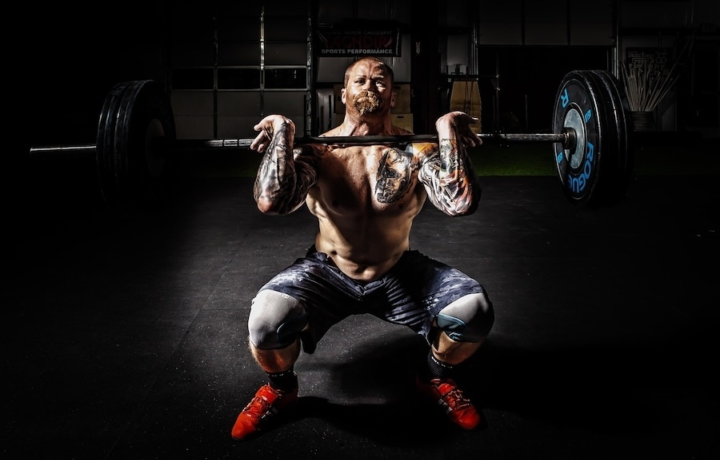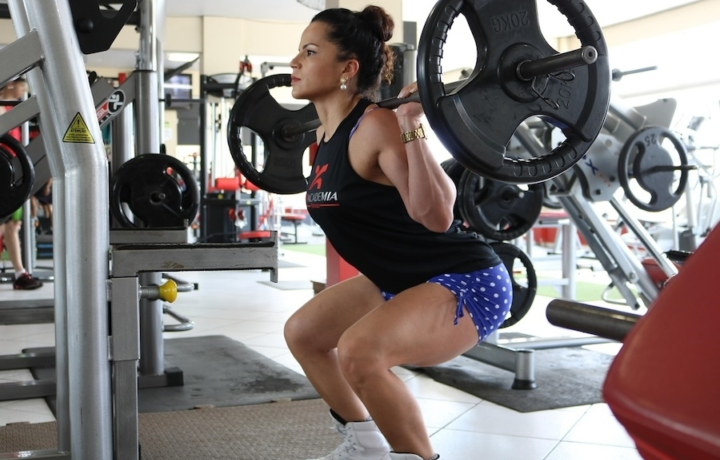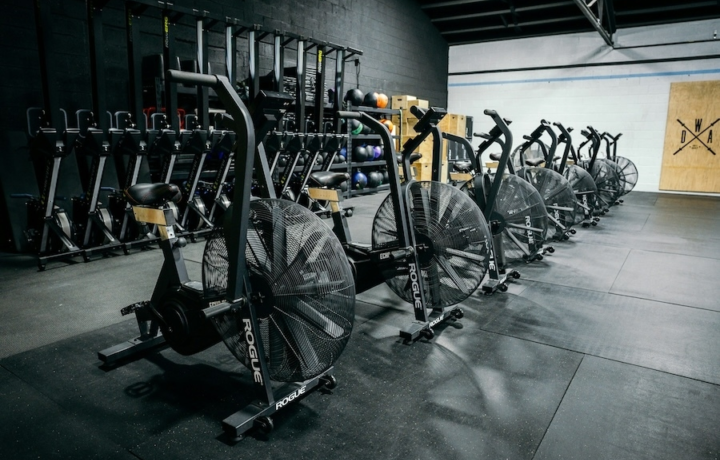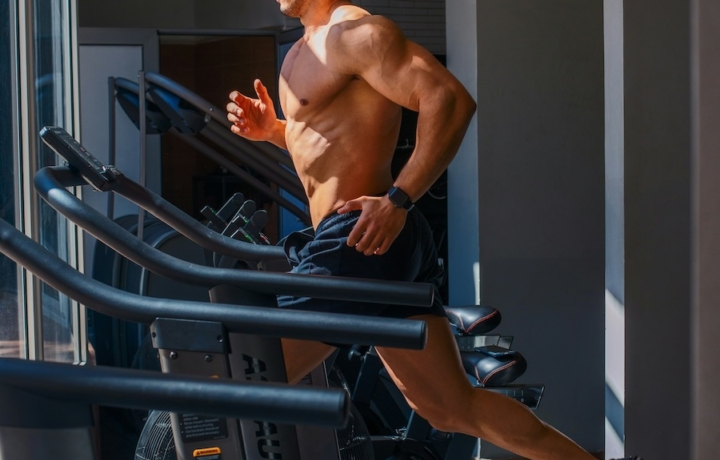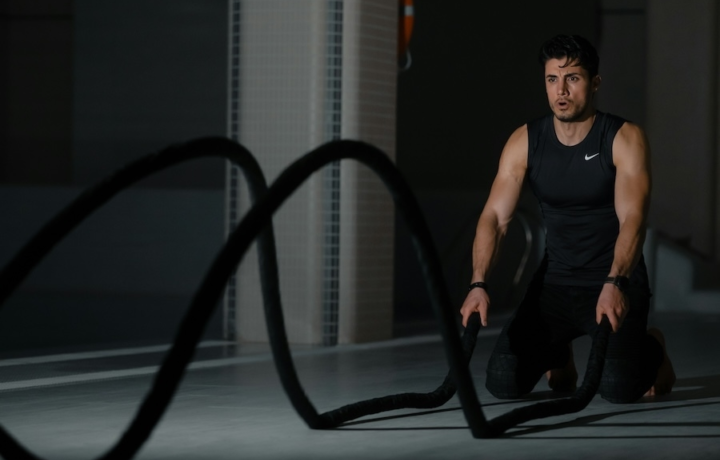Exercises to build strength, endurance and athleticism with CrossFit-style training
Crossfit exercises
CrossFit exercises combine functional movements with high-intensity intervals to build strength, power, and aerobic capacity. Whether you're training for sport, fat loss, or general fitness, CrossFit provides full-body workouts that push your limits. This overview highlights the best CrossFit exercises for various fitness levels and how they help you develop a more robust body.
Focus on
Pick your muscle groups
Pick your equipment
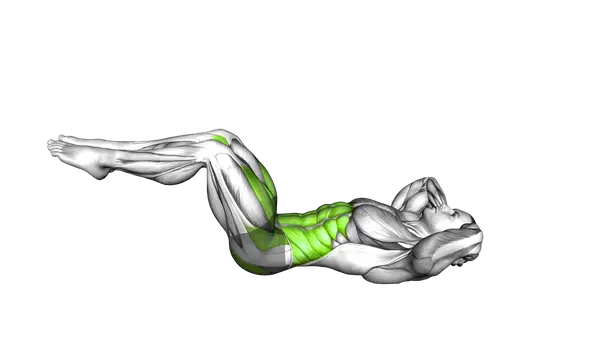
Abdominal Air Bike
The Abdominal Air Bike is a bodyweight core exercise that combines controlled rotation with steady tension to build strength and endurance.
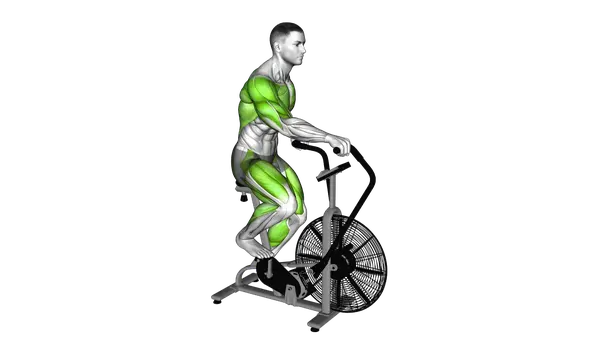
Assault Bike Run
The Assault Bike Run is a full-body conditioning movement that uses steady pedaling and pushing to build stamina and work capacity.
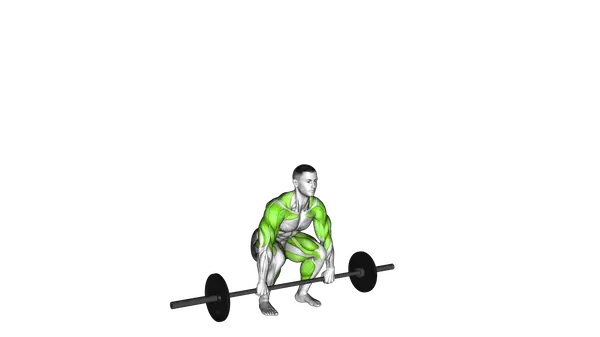
Barbell Clean And Jerk
The Barbell Clean and Jerk is an explosive full-body lift that builds power, coordination and total-body strength in one fluid movement.
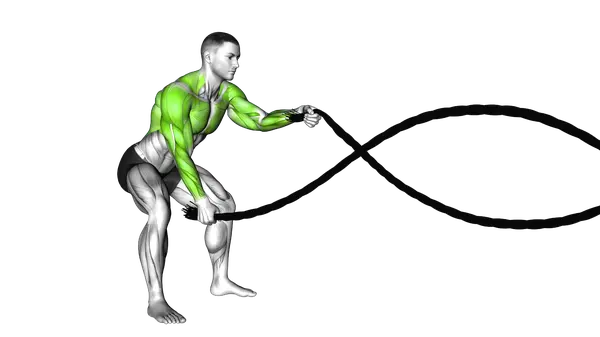
Battling Ropes
The Battling Ropes deliver a high-intensity full-body workout that builds endurance, power, and conditioning through continuous, explosive movement.

Bodyweight Full Squat With Overhead Press
The Bodyweight Full Squat With Overhead Press is a full-body exercise that builds leg strength, shoulder endurance and coordination.
Built for Progress
Take the Guesswork Out of Training
Create personalized AI-powered workout plans that evolve with you. Train smarter, track every rep and keep moving forward.
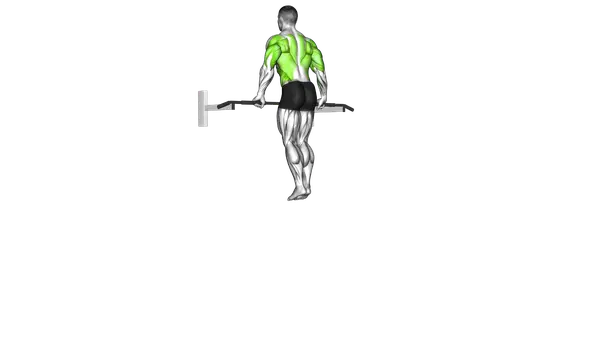
Bodyweight Muscle Up
The Bodyweight Muscle Up is an advanced bodyweight exercise that combines pulling and pressing strength to move from hang to support.

Burpee
The Burpee is a full-body exercise that builds conditioning, strength, and coordination through a fast, continuous movement.

Burpee Box Jump
The Burpee Box Jump combines a burpee with an explosive box jump to build full-body power, coordination, and high-intensity conditioning.

Burpee Broad Jump
The Burpee Broad Jump is a full-body exercise that combines a burpee with a forward jump to build power, conditioning, and total-body strength.
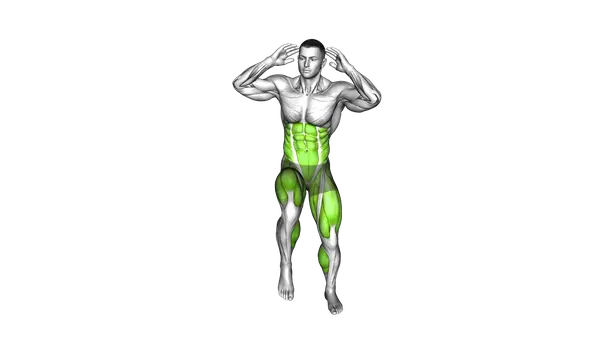
Criss Cross Elbow To Knee
The Criss Cross Elbow to Knee trains your abs through controlled rotation, improving core strength, balance and coordination.

Dumbbell Devils Press
The Dumbbell Devil’s Press is a full-body exercise that combines strength, explosive movement and intense cardio effort.
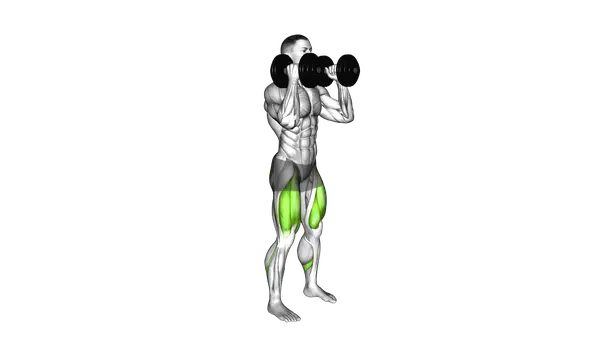
Dumbbell Front Squat
The Dumbbell Front Squat is a compound lower-body exercise that builds leg strength while encouraging an upright squat position.
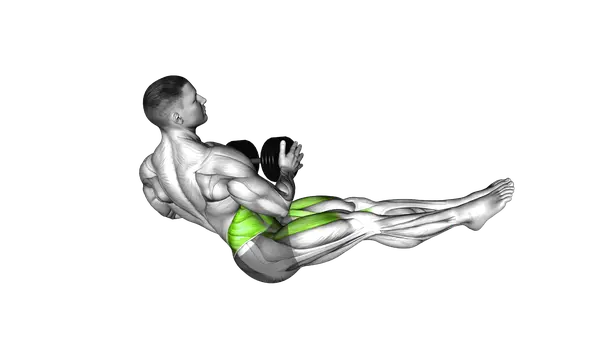
Dumbbell Russian Twist
The Dumbbell Russian Twist is a seated core exercise that trains control and rotation while keeping your balance and posture steady.
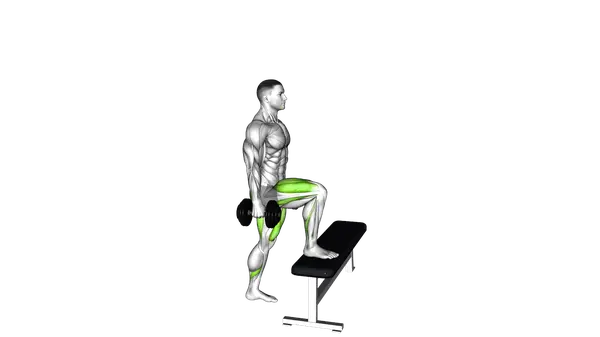
Dumbbell Step Up
The Dumbbell Step Up is a simple but effective lower-body exercise that builds leg strength, balance and control using a raised platform.
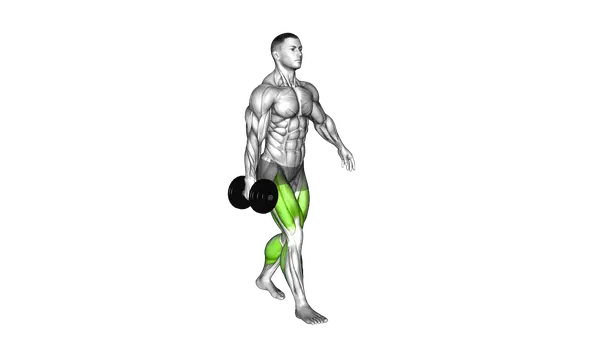
Dumbbell Suitcase Carry
The Dumbbell Suitcase Carry is a simple loaded walk that builds core control and posture by carrying weight on one side.
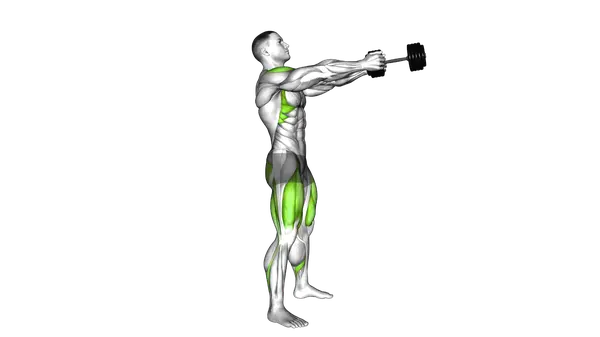
Dumbbell Swing
The Dumbbell Swing is a fast, hip-driven exercise that builds explosive power, strengthens the lower body and quickly elevates your heart rate.

Dumbbell Thruster
The Dumbbell Thruster is a full-body compound exercise that combines a squat and overhead press to build strength and conditioning.
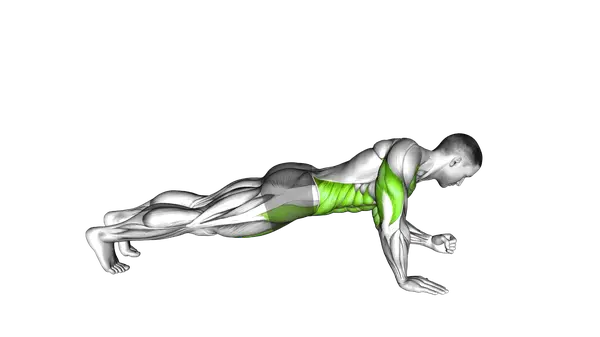
Elbow Up And Down Dynamic Plank
The Elbow Up and Down Dynamic Plank adds controlled movement to a plank to build core strength, stability, and shoulder control.
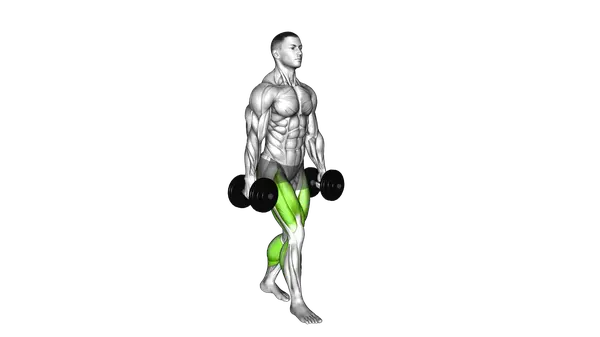
Farmers Walk
The Farmers Walk is a loaded carry exercise that builds grip strength, full-body stability, and posture under continuous tension.
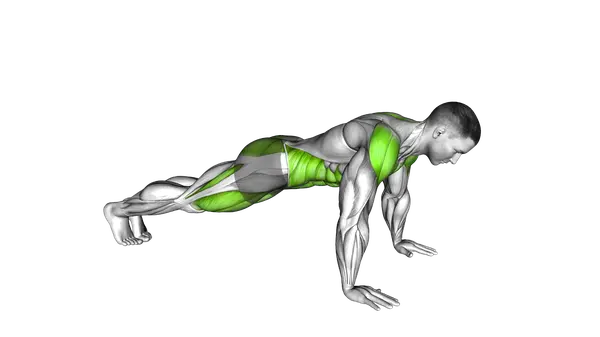
Front Plank To Toe Tap
The Front Plank to Toe Tap is a controlled plank variation that challenges core stability while adding small, alternating leg movements.
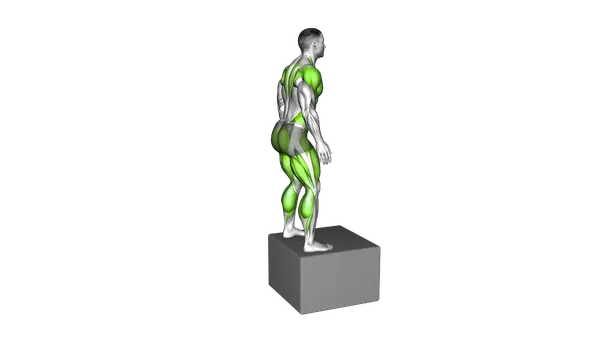
Jump Box
The Jump Box is an explosive lower-body exercise that builds leg power and coordination by jumping onto a raised platform.
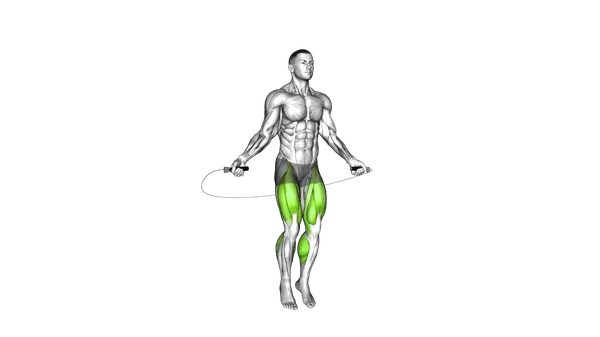
Jump Rope
The Jump Rope is a bodyweight exercise that uses repeated jumps to build lower-body endurance, coordination and movement efficiency.
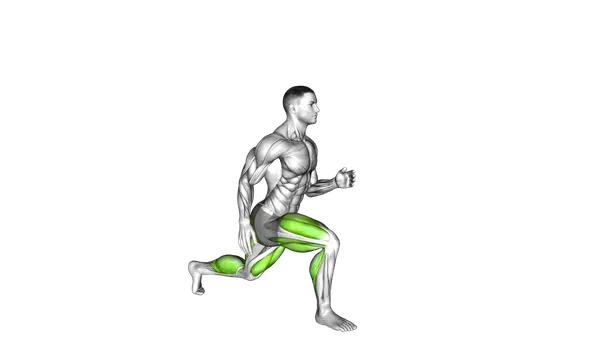
Jump Split
The Jump Split is a bodyweight jumping exercise that alternates split stances to build lower-body power, control, and landing stability.
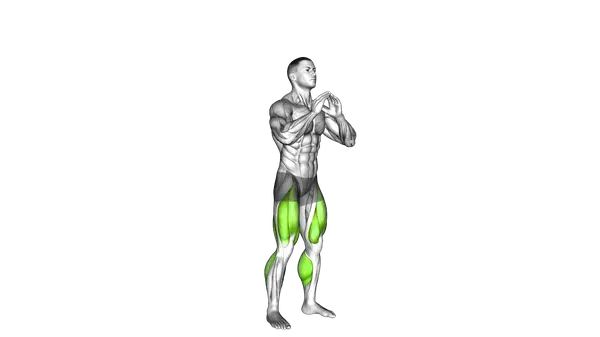
Jump Squat
The Jump Squat is a bodyweight squat variation that adds a vertical jump to develop lower-body power and controlled landing strength.
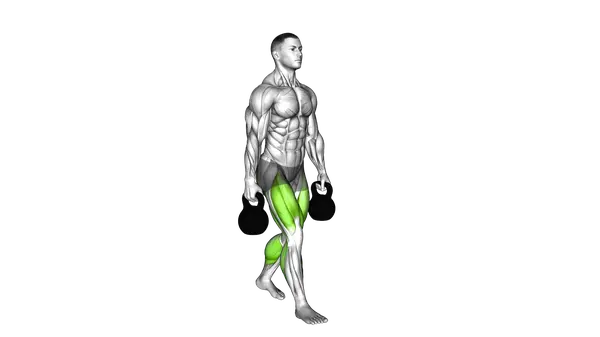
Kettlebell Farmer's Carry
The Kettlebell Farmer’s Carry is a full-body strength and conditioning exercise that builds grip strength, core stability and total-body control.
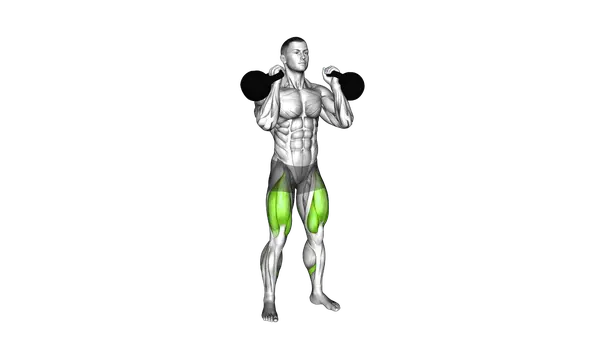
Kettlebell Front Squat
The Kettlebell Front Squat is a squat variation that builds leg and glute strength while challenging posture and control through a front-loaded position.
Enhance power, mobility, and cardiovascular endurance
Training goals for CrossFit development
CrossFit is known for its ability to enhance strength and cardiovascular fitness simultaneously. The key is functional movements that engage multiple muscle groups and improve movement efficiency. Training CrossFit-style builds total-body endurance, supports fat loss, and improves flexibility and stamina. This program challenges you to work across multiple planes of motion and continually develop as an athlete.
Use compound lifts and bodyweight movements for full-body conditioning
Best CrossFit exercises for strength and conditioning
The best CrossFit exercises include Olympic lifts like clean and jerks, snatches, kettlebell swings, box jumps, and burpees. These compound movements engage multiple muscles simultaneously, improving power and endurance. CrossFit also incorporates bodyweight exercises such as push-ups, wall balls, rope climbs, and double-unders. The combination of strength movements with high-intensity intervals builds both muscle and stamina. Focusing on functional movements that replicate real-world tasks gives you practical fitness benefits.
Train with barbells, kettlebells, medicine balls, or bodyweight
Equipment options for CrossFit training
CrossFit uses a variety of equipment, but you don’t need a full gym to train effectively. Barbells, kettlebells, medicine balls, and jump ropes are staples in a CrossFit workout. For at-home CrossFit, dumbbells, resistance bands, and bodyweight movements like air squats or push-ups are great alternatives. The key is using tools that challenge your body and allow for full-body movement patterns. CrossFit training is adaptable for any space or fitness level.
Integrate CrossFit into your weekly routine for strength and conditioning
Training plans featuring CrossFit exercises
A balanced CrossFit program includes 3–5 sessions per week, depending on your fitness level and goals. CrossFit can be adapted to different training splits: full-body workouts, upper-lower splits, or dedicated skill days. It’s essential to listen to your body and include rest days to recover. Our app helps you design a customized CrossFit training plan, incorporating exercises suited to your level, available equipment, and goals: whether you’re focusing on strength, conditioning, or skill development.
Frequently asked questions about CrossFit exercises
While CrossFit is generally focused on compound movements, isolation exercises such as bicep curls, tricep extensions, and leg curls can be used in CrossFit to target specific muscle groups. These exercises are often incorporated to improve muscle balance or as accessory work to strengthen weak points or enhance specific skills.
Most people train CrossFit 3–5 times per week. Beginners should start with 2–3 sessions per week to allow their body time to adapt to the intensity. As your body becomes more conditioned, you can increase frequency and intensity. Include rest days to ensure recovery, and vary workout routines to prevent burnout or overuse injuries.
Yes, CrossFit can be effectively done at home using bodyweight exercises such as push-ups, air squats, lunges, and burpees. Jumping jacks, mountain climbers, and planks can be added to increase intensity. While equipment like kettlebells, dumbbells, and ropes add variety and progression, home-based CrossFit workouts can still be highly effective without them.
The best CrossFit exercises include Olympic lifts (clean and jerk, snatch), kettlebell swings, box jumps, and burpees. These exercises are staples for building both strength and cardiovascular conditioning. CrossFit routines often incorporate high-intensity intervals, using functional movements that engage multiple muscle groups for full-body conditioning.
CrossFit exercises improve endurance by combining strength movements with cardiovascular conditioning. By performing high-intensity exercises like kettlebell swings, rowing, and running intervals, you improve both aerobic and muscular endurance. The constant variation in movements and intensities pushes your body’s capacity to perform sustained effort over time.
Integrate CrossFit exercises into full-body and split routines
